You can listen to the episode or read the edited transcript below!
Learning and broadening your knowledge is the most crucial endeavor anyone can do for themselves. When I think of advocates for education, I think of Malala Yousafzai or Rita Pierson with her TED talk, "Every Kid Needs a Champion1." Yet, as widely accepted as a yearning for education is, there has always been staunch opposition to creating accessible education from powerful groups like the Taliban, lobbyists against canceling student debt, organized religions, and world governments (like the US with some states opposing updating the curriculum to include topics like Critical Race Theory or states with aggressive book bans.)
I see a common theme come up again and again from those who wish to limit access to knowledge or only supply a sanitized curriculum: powerful organizations or individuals who are members of these organizations.
We see this trope play out in many narratives throughout time, all the way to the ancient world. Like in Genesis 2:17 in the Abrahamic texts with God's reaction to Adam and Eve eating from the fruit of the knowledge tree. Or in ancient Greek mythology, with Zeus' intense and swift punishment of the Titan god, Prometheus.
In this mythology, Prometheus, the god of forethought, felt pity for the cold and starving humans of old with their limited access to tools and lack of fire and decided to give them fire, going directly against Zeus' wishes. Prometheus had a soft spot for humans, as he had previously helped them outsmart the supreme god, Zeus. (When humans were debating what cut of meat to sacrifice to the gods and what to keep for themselves, Prometheus helped the humans hide the edible meat with the intestines of the sacrificed animal while wrapping the bones and carcass up in glistening fat. Zeus picked for himself which he'd prefer, and based on appearance, he chose the glistening package rather than the one wrapped in intestines. After realizing he had been tricked and with a sorely bruised ego, Zeus took fire from the humans.)
An interesting point here is that Zeus has styled himself as not only the head god but also a wise one. Homeric poems call him Mêtieta or "the Wise Counselor," and Hesiod, an Archaic poet, wrote about Zeus in a similar way. But he had gained wisdom by devouring his first wife, Metis (whose name loosely means wisdom, cunning, etc.) He got his knowledge as you would get nutrients from a sandwich. Undoubtedly, this plays a factor in the intense punishment he subjected Prometheus to. When a god of forethought outwits the "mightiest" god who obtained his wisdom by questionable means, there are bound to be ego problems that come up. (I'm also thinking of the one-eyed, wisdom-obsessed supreme god of the Norse pantheon, Odin.) This is pure fantasy, but I like to think that Metis, still trapped in Zeus' stomach, was able to see her cousin and fellow Titan of wisdom, Prometheus, outwit her captor multiple times.
As Prometheus again helped the humans by gifting them the knowledge of fire (previously only accessible to the gods), Zeus was furious.
The proverbial "cat" was out of the bag, or to use an ironic colloquial mistranslation, "Pandora's Box2" had been opened. That knowledge was out and accessible to the masses, no longer reserved for a small group of extremely powerful individuals.
So, what's relevant about a few Pagan gods from millennia ago squabbling about fire?
In psychological terms--on an individual level--we can see this type of knowledge-gathering and education as Self-Actualization. Someone getting into touch with their inner truth and more deeply understanding the world around them could certainly be relevant here. Carl Jung, a psychoanalyst from the twentieth century, talked about the "Promethean Guilt," essentially having Zeus as a representation of the unconscious and Prometheus as a representation of the conscious. He said, "Something that was the property of the unconscious powers is torn out of its natural context and subordinated into the whims of the conscious mind3." When it comes to knowledge leading to self-actualization, I'd agree. However, I think a more apt example is Eve from Genesis playing the role of the conscious and God in the part of the unconscious.
But on a grander scale, this Prometheus versus Zeus conflict and the struggle to share knowledge with the masses reminds me of government and corporate whistleblowers and the brutal punishments that come to them after the fact. (After all, Zeus chained Prometheus to a mountain and had his eagle peck out his regenerative liver.)
This "Promethean Consequence," as I call it (not to be confused with the "Promethean Gap4"), is also visible in authoritarian governments and their propaganda. Sometimes, it just takes one person in the crowd to share objections or question the system for the propaganda's house of cards to collapse.
The Big Picture
Ever since the TikTok trend of how often men think about the Roman Empire and the subsequent response of women pondering on what their version of the "Roman Empire" is for them, I've been thinking a lot about what my version is. Admittedly, I'm fascinated by the Romans, so I do think about them almost every day, but in my defense, I read a lot of history books, so it's hard not to!
But if I were to think seriously about this, I'd say that Prometheus, and more accurately, Eve, is my "version" of the Roman Empire. I think about her almost every day. She was the one in the Abrahamic texts that delivered humans from ignorance, and in his own way, Prometheus was, too.
Ignorance is said to be Bliss, but is it, really?
Bliss is not living in a sanitized and curated world with limited access to knowledge that a few select influential people of the top decide is acceptable for everyone to know.
Do we really want to live in a pristine but ultimately fake version of reality?
The Garden of Eden may have been a beautiful sight, but there's something to be said about the raw beauty of nature and the way it bursts with vitality versus a manicured garden meant to look perfect but doesn't actually support life.
P.S. In next week's Notabilia segment on Substack, I'll go more deeply into the main ancient source for this week's episode, the play Prometheus Bound, and talk about details that couldn't make it onto today's show!
Rita Pierson, “Every Kids Needs a Champion” TED Talk
“Pandora’s Box” is a mistranslation. The Greek is “Pandora’s Jar.” I call the phrase “Pandora’s Box has been opened” ironic because another one of Zeus’ punishments for Prometheus was sending his brother, Epimetheus (aka hindsight), a wife, Pandora. Zeus gave her a jar, telling her never to open it but also not telling her what was in it. Eventually, she did open the jar, releasing all the horror of our world, but with Hope stuck under the lid.
A quote from a footnote in “The Persona as a Segment of the Collective Psyche.” I used “The Portable Jung,” edited by Joseph Campbell from Penguin Publishing, for this quote.
The Promethean Gap (also known as the Promethean Effect) is the consequence of technology becoming more and more sophisticated while humans become more and more unable to see the long-term effects of this constant sophistication.


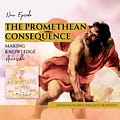





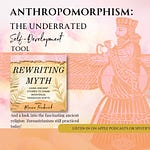
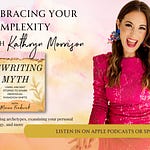

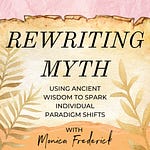
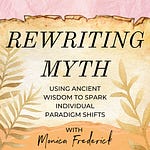
The Promethean Consequence